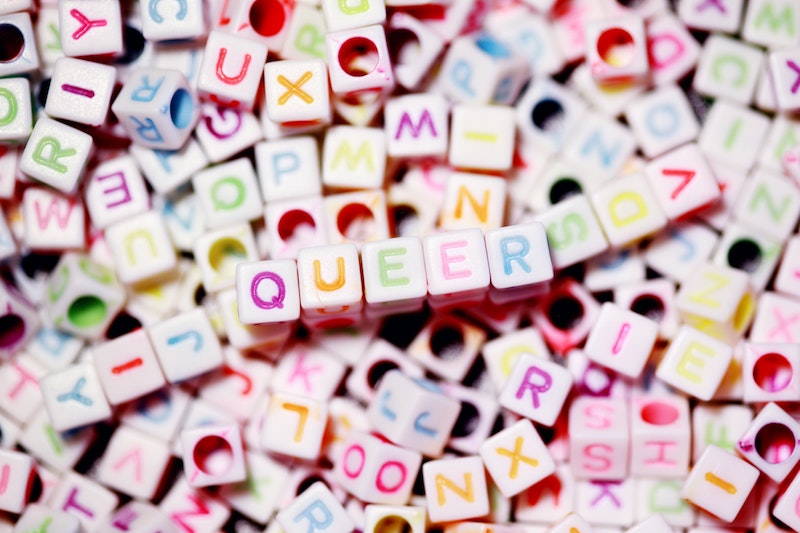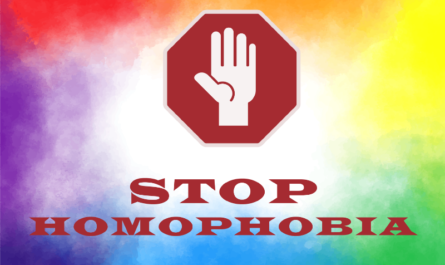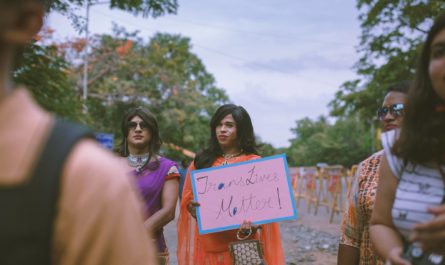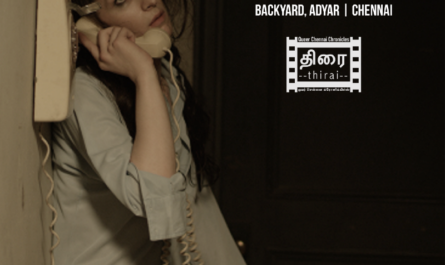This request is based on inputs and suggestions from Tamil speaking LGBTQIA+ persons who are writers, media persons, academics and community organisers.

Justice Anand Venkatesh of the Madras High Court has given a direction (W.P.No.7284 of 2021) to the Government of Tamil Nadu to come up with a list of terms to label LGBTQIA+ persons in Tamil Nadu, based on a short note provided by the petitioner’s Counsel. We welcome the idea behind this direction, which is to ensure that LGBTQIA+ persons and communities are addressed with dignity in all spheres of life.
The Tamil speaking LGBTQIA+ community has been advocating with the media and entertainment industry for fair representation and usage of the right terms that represents the community. The direction from Justice Anand Venkatesh is an encouragement for the work the community has been doing already with respect to media representation and reporting about LGBTQIA+ persons.
There are various efforts by the global community of Tamil speaking LGBTQIA+ persons — from Tamil Nadu, Sri Lanka and the diaspora — to have a healthy discussion on queerness in Tamil, and the terms we could use to refer to ourselves that represents us. In this effort, Queer Chennai Chronicles with the Curator and Director of the Jaffna Queer Festival is working on a Queer Tamil Roundtable to discuss diverse queer terminologies and bring out a guide on Queer Terminologies in Tamil.
Similarly, Queer Chennai Chronicles along with The News Minute, senior journalists from Tamil Nadu (including LGBTQIA+ identified media persons) is working on Queer Inclusive Media Guidelines in English and Tamil for fair and inclusive reporting of LGBTQIA+ persons.
Apart from this, Cre-A publications included a few terms related to the LGBTQIA+ community in their 2020 edition of the Cre-A Dictionary of Contemporary Tamil (Tamil – Tamil – English) dictionary. While this dictionary is a good start, it still falls short on capturing the extensive terms and definitions of the diverse global Tamil Speaking LGBTQIA+ community.
The order has also rightly noted that short notes submitted by the counsel for the petitioner are illustrative and not exhaustive to address the LGBTQIA+ community. Some of the terms in the list also seem to be not practically used by the LGBTQIA+ community in our daily spoken or written communication.
For Example: Nangai (நங்கை) to refer to lesbian woman and Nambi (நம்பி) to refer gay men are not used in the day to day life, or in any known published literature or communication of the larger LGBTQIA+ community. The terms Nangai (நங்கை) and Nambi (நம்பி) also limits the understanding and expression of sexual orientation. In this case a transgender lesbian woman will be திருநங்கை நங்கை (thirunangai nangai) and transgender gay man will be திருநம்பி நம்பி (thirunambi nambi). Nangai (நங்கை) is also a commonly used Tamil term to refer to a woman, and in certain Tamil regions the term Nangai (நங்கை) also used to address sister-in-law. Pansexuality is mentioned as பலபாலீர்ப்பு (pala paalliirpu) which means “attraction towards many genders”, whereas the correct term in Tamil is அனைத்துப்பாலீர்ப்பு(Anaitthu pal iirppu).
The order by Honourable Justice Anand Venkatesan also directs the Government of Tamil Nadu to standardise “expressions” related to the LGBTQIA+ community. While we understand the solicitude behind this direction, we believe that expressions such as “coming out” or a “person expressing themselves” to their family or friends or others, are part of a person’s personal communication aspect. “Standardising” such personal expressions runs the risk of either the state formulating the “correct” way for LGBTQIA+ persons to express themselves, or excluding other positive ways the community might express themselves.
While the Honourable High Court’s direction is for media reporting, it would be best if the Government of Tamil Nadu has a larger community consultation and panel to decide on how to proceed with this direction.The Government can also encourage existing community efforts related to terminologies on gender and sexuality, and media style guides, by assisting or providing technical and financial support to proceed with the research work. They could also encourage universities to initiate research on language, gender and sexuality, which would be a great effort for the Tamil language and the global Tamil speaking LGBTQIA+ community.
We request you to urge the Government of Tamil Nadu to invite diverse Tamil speaking LGBTQIA+ persons and communities for such a consultation, so that the Honourable Madras High Court’s order is taken forward in the best manner, and in the best interest of the LGBTQIA+ communities and persons in Tamil Nadu.
The labels/terms used to refer sexual orientation, gender identity, gender expression and sex characteristics (SOGIESC) varies even among the Tamil speaking LGBTQIA+ persons and depends on factors such as location, access to other language academic resources, age (generational) and cultural references that we grow up with.
We recommend that the best way to proceed for the Government of Tamil Nadu is based on the SOGIESC (Sexual Orientation, Gender Identity, Gender Expression and Sex Characteristics) approach to refer to the LGBTQIA+ community, rather than “nouns and labels” — which are, at the moment, limiting and exclusionary for many in the LGBTQIA+ community.
Everyone has a sexual orientation, gender identity, gender expression and sex characteristics (SOGIESC). SOGIESC is an inclusive term that applies to everyone, whether they identify as lesbian, gay, bisexual, transgender, intersex, queer — or heterosexual, cisgender (persons, identifying with the same gender that they were assigned at birth). A woman attracted to a man; and a man attracted to a woman also have sexuality, a sexual orientation. Additionally when speaking from a rights perspective it is important to not alienate LGBTQIA+ persons for their sexuality and gender identity which everybody has. SOGIESC approach will also help in identifying laws, policies and welfare schemes that excludes anyone who is not heterosexual and/or cisgender person and eventually can be worked to make them inclusive of everyone. Similarly for equitable and affirmative schemes the SOGIESC model will help in being inclusive.
Please find some of the other terms/resources collected by Tamil speaking LGBTQIA+ persons based on the SOGIESC model.
LGBTQIA+ பதங்களை நெறிப்படுத்தும் சென்னை உயர்நீதிமன்ற உத்தரவிற்காக கருத்துக் கேட்பு கோருதல்



